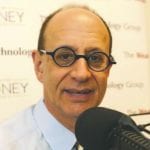Fight Back with Diligence, Communication, Monitoring, Education
By Julie Quink, CPA, CFE

Julie Quink
In recent months, business owners have been faced with difficult business decisions and worries surrounding the financial and safety impacts of the COVID-19 pandemic, including the temporary closure of non-essential businesses, layoffs and the health of their workforce, remote work, and financial stability (short- and long-term) for their business.
In short, they have had much on their minds to stay operational on a day-to-day basis or in planning for reopening. And with that, businesses are prime targets for fraud schemes.
As professionals who counsel clients on best practices relative to fraud prevention and detection techniques, we unfortunately are not immune to fraud attempts as well. The filing of fraudulent unemployment claims is a scheme for which we have recent personal experience. The importance of internal controls — and making sure that appropriate controls are in place in a remote environment, with possibly leaner staff levels — should be heightened and reinforced.
Fraudulent Unemployment Claims
The filing of fraudulent unemployment claims has been one of the newest waves of fraud surrounding employees. These claims certainly have an impact for the individual for whom a claim is filed, but also have further-reaching implications for the victimized business as well.
In these schemes, an unemployment claim is filed using an employee’s identifying information, including Social Security number and address. Unfortunately, if you have ever been a victim of a data breach, you can feel confident that your personal information has been bought and sold many times since that initial breach.
Since these claims can be filed electronically, an online account is created by the fraudster for the individual. In that online setup and given that unemployment payments can be electronically paid, the fraudster sets up his or her own personal account as the receiver of the unemployment funds.
“The filing of fraudulent unemployment claims has been one of the newest waves of fraud surrounding employees. These claims certainly have an impact for the individual for whom a claim is filed, but also have further-reaching implications for the victimized business as well.”
In most cases, the first notification that an unemployment claim has been filed is a notice of monetary determination received by the individual via mail at their home address from the appropriate unemployment agency for the state that the claim has been filed with. By then, the claim has already made its way to the unemployment agency for approval and has gone through its system for approvals. In these pandemic times, the unemployment agencies have increased the speed at which claims are processed to get monies in the hands of legitimate claimants, but in the process have allowed fraudulent claims to begin to enter the process more rapidly.
So, you might wonder how this impacts a business if the claim is fraudulently claimed against an individual. Again, with some personal firm experience in tow, we can say that these claims are making it to determination status at the business level.
Even though the claim is fraudulent and, in some cases, the employee is gainfully employed at the business, the claim makes its way to the employer’s unemployment business account. Hopefully, affected individuals have been notified through some means that the claim has been filed. However, employers should not bank on that as a first means of notification of the fraud.
Perhaps employers are monitoring their unemployment accounts with their respective states more frequently because they may have laid off employees, but for those employers who still have their workforce intact, the need to monitor may not be top priority.
Impact of the Scheme
The impact on an employer of a fraudulently filed unemployment scheme targeting one of its employees is not completely known at this time because the scheme is just evolving. However, we do know this scheme merits notification to employees of the scam and increased monitoring of claims — both legitimate and false — by the company, all during a time when financial and human capital resources are stretched.
The scheme could cause employer unemployment contributions going forward to be inflated because of the false claims. For nonprofit organizations, which typically pay for unemployment costs because claims are presented against their employer account, this scheme could have significant financial implications.
For the individual, the false claim, if allowed to move through the system, shows they have received unemployment funds. This has several potential negative effects, including the ability to apply for unemployment in the future, the compromise of personal information, and the potential tax ramifications in the form of taxable unemployment benefits even though the monies were not actually received.
Detection and Prevention Techniques
Internal controls surrounding the human resources and payroll area should be heightened and monitored to encompass more frequent reviews of unemployment claims.
Communication with employees about the unemployment scam and the importance of forwarding any suspicious correspondence received by the employer is key. The employee may be the first line of defense.
Also, working in a remote environment should give business owners cause to pause and re-evaluate systems in place, including data security and privacy. It is unclear how these fraudsters may be obtaining information, but it is critical to be diligent and reinforce the need for heightened awareness relative to e-mail exchanges, websites visited, and data that is accessible.
Diligence, communication, monitoring, and education are important for business owners to prevent and detect fraud. Diligence in ensuring appropriate systems are in place, continued open and deep lines of communication with team members, monitoring relative to the effectiveness of systems, and educating team members on the changing schemes and the importance of their role are effective first steps.
Julie Quink is managing principal with West Springfield-based accounting firm Burkhart Pizanelli; (413) 734-9040.







 JD, LLM, CLU, ChFC, AIF, CDFA
JD, LLM, CLU, ChFC, AIF, CDFA


